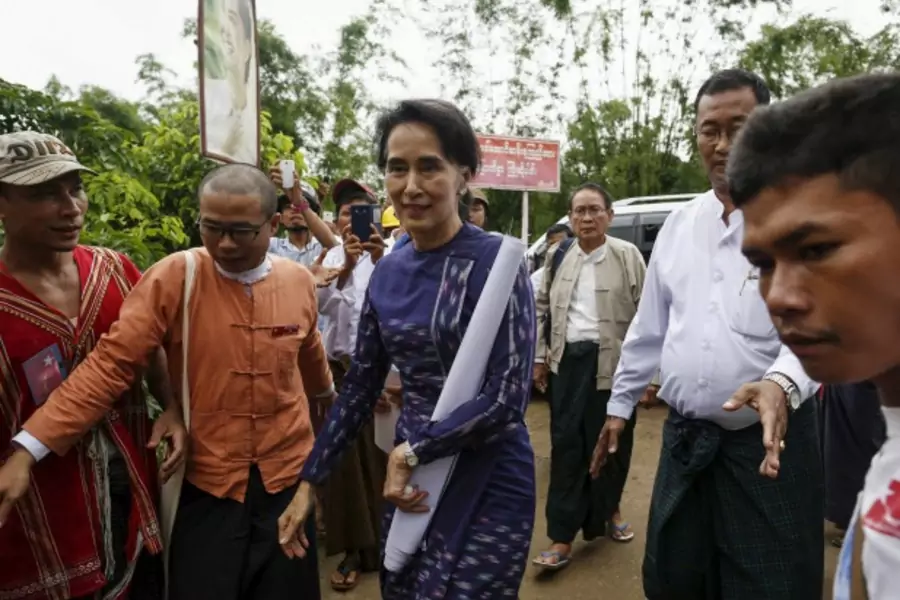More on:
Last week, Myanmar announced that its much-anticipated elections, the first free national election in twenty-five years, would be held on November 8 of this year. With the election’s date finally set, after months of rumors, the country’s political parties---and there are more than eighty of them that may run in the election---can begin campaigning in earnest.
What should we expect on November 8, and the days immediately after? For one, the actual Election Day will likely proceed relatively smoothly and fairly. During the last truly free national election, in 1990, the actual Election Day was orderly and the vote was free, even though after Election Day the junta never recognized the results. This time around, Myanmar’s election commission has already established itself as a relatively nonpartisan operation, overseeing by-elections three years ago that were considered free and fair, and resulted in an National League for Democracy (NLD) landslide. Myanmar politicians I have spoken with, from several political parties, do not expect the kind of massive fraud or overt army interference on Election Day that has characterized elections in many countries transitioning from authoritarian rule, like Nigeria or Thailand, among others. (The government is also likely to allow in many foreign election observers; government officials have already said they would permit observers from the European Union and the Carter Center, among others.)
In addition, the NLD will dominate the election. International criticism of Aung San Suu Kyi for her silence on Rohingya issues, the Union Solidarity and Development Party (USDP)’s money and support from senior army leaders, the achievements of the Thein Sein administration, the NLD’s lack of experience in governing---though USDP politicians have been touting all of these factors as reasons why the NLD could lose, Suu Kyi’s party is likely to win big. Myanmar’s first-past-the-post system helps the NLD; a proportional representation system would have aided the USDP.
Third, Myanmar will enter a dangerous period after the elections, one similar in some ways to the period following Indonesia’s parliamentary elections in 1999, the first after the end of the Suharto era and the first truly free elections in Indonesia since the 1950s. Then, as in Myanmar today, legislative elections were held, but the president was not elected directly, as it is in Indonesia now; Indonesia’s legislators chose the president. This created a scenario in which Abdurrahman Wahid was able to put together a coalition of legislators and to become the president, leaving Megawati Sukarnoputri and her supporters largely feeling robbed, since their party had taken the most seats. Lacking a strong personal mandate proved one of many obstacles for Wahid, who was ousted from the presidency by a special legislative session only two years later, and then resigned from politics.
Since it appears impossible that, before the election, Myanmar will change its statute that bars Aung San Suu Kyi from becoming president, even if the NLD wins a large majority in parliament, it will need to find some compromise choice for president. The likeliest candidate, it still seems, is the speaker of the lower house, former general Thura Shwe Mann. Thura Shwe Mann presents himself as a reformer, but he remains distrusted by many NLD politicians; the house speaker also has earned the enmity of some in the armed forces for supporting legislation designed to reform the military. (The legislation failed.) If he becomes president, Thura Shwe Mann will have to perfect his abilities to triangulate between the armed forces, still the most powerful institution in Myanmar, and NLD members of parliament who know they, and not the president, were elected by the populace, and who want to use their mandate to drastically limit the power of the army.
Alternatively, President Thein Sein, who recently dropped his public commitment to serving only one term, could be the compromise choice. Yet while Thein Sein enjoys more support in the armed forces, he apparently has a worse working relationship with Suu Kyi and many other NLD politicians than Thura Shwe Mann. Either way, the period after the election will be perilous.
More on:
 Online Store
Online Store
